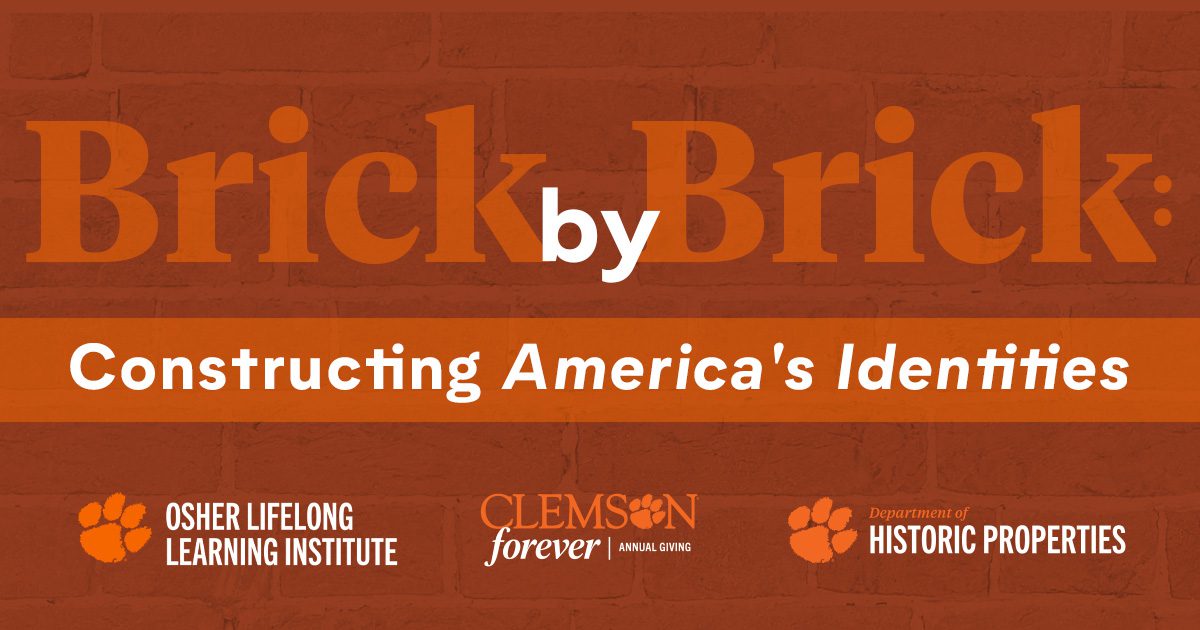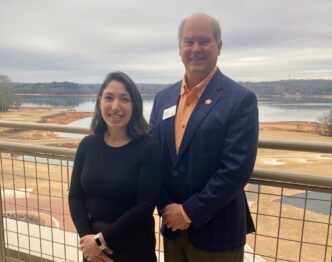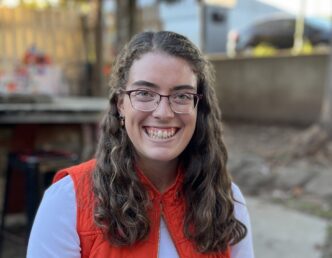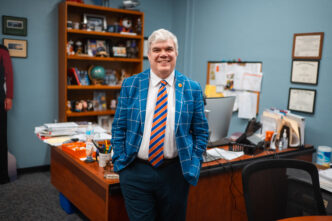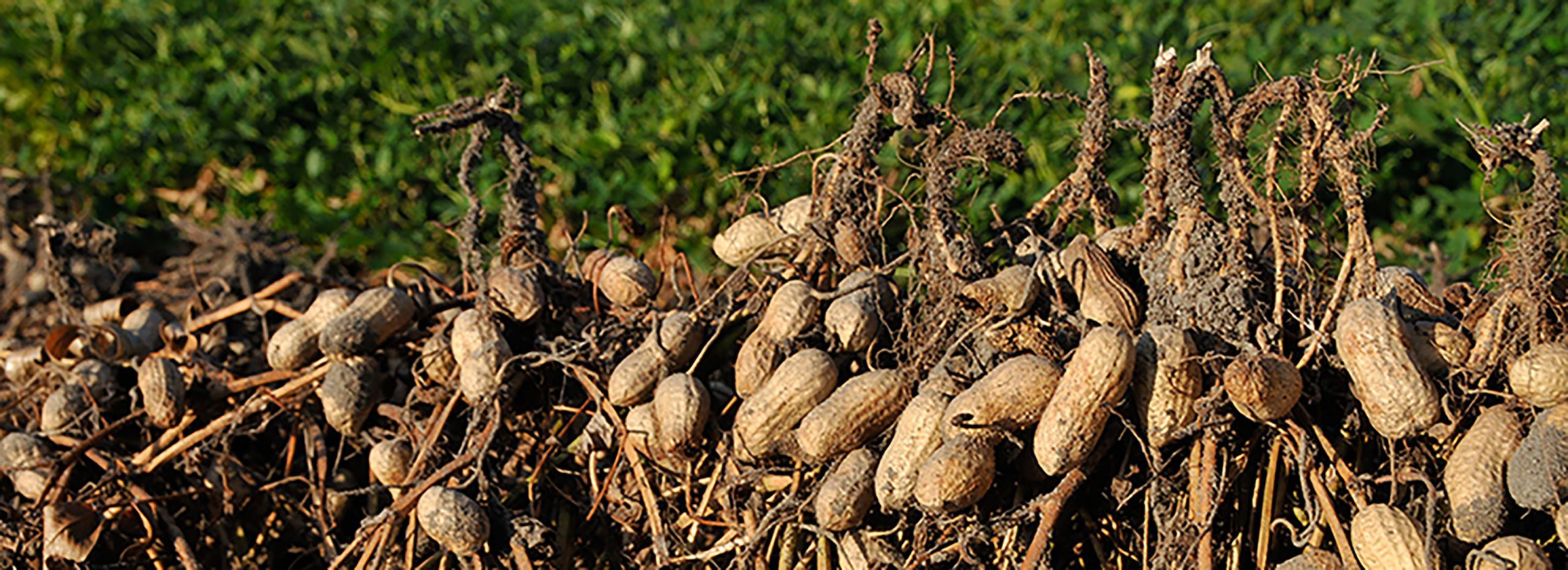Clemson University’s Historic Properties is bringing back its “Brick by Brick: Constructing America’s Identities” speaker series for the second year, featuring authors who will present different perspectives on the history of America’s built environment. In partnership with the Osher Lifelong Learning Institute and Clemson Annual Giving, the series will feature five events from June 17 to July 29.
“Historic Properties is excited to bring back Brick by Brick for a second season, as a way to stay engaged with our local community throughout the quieter summer months. This program is an excellent way for us to connect people and places with our shared past,” said Naomi Gerakios Mucci, executive director and chief curator for Historic Properties.
All events will take place starting at 5:15 p.m. at the Charles K. Cheezem Education Center in Patrick Square, home of the Osher Lifelong Learning Institute. Tickets are $30 for each event or $125 for a series ticket. Each event will include hors d’oeuvres and an exclusive tour of historic properties on campus and in the surrounding area.
Schedule:
June 17 – Peter Wood, “Black Majority: Negroes in Colonial South Carolina Through the Stono Rebellion”
Peter Wood is professor emeritus of history at Duke University, where he taught from 1975 to 2007. His pioneering book on enslavement in the colonial era appeared last year in an expanded fiftieth-anniversary edition: “Black Majority: Race, Rice, and Rebellion in South Carolina, 1670-1740.”
June 24 – Margaret Seidler, “Payne-ful Business: Charleston’s Journey to Truth”
Margaret Seidler is a retired organization and leadership development consultant, national conference speaker, and author. A native of Charleston, she and former City Police Chief Greg Mullen led the Charleston Illumination Project, a year-long effort following the shooting at Mother Emanuel Church designed to give all parts of the community a voice in strengthening citizen/police relationships.
July 8 – Mable Owens Clarke and John Coggeshall, “Liberia, South Carolina, an African American Appalachian Community”
Deacon Mable Owens Clarke is both matriarch and historian of Soapstone Baptist Church, as well as a founding member of the Soapstone Preservation Endowment. She and her husband, Charles Davis, a trustee of Soapstone Church, work together to maintain the church, schoolhouse, cemeteries and the six acres of grounds upon which sits Soapstone Baptist Church.
John Coggeshall is a professor of anthropology in the Department of Sociology, Anthropology and Criminal Justice at Clemson. His professional interests include American regional and folk groups and sense of place in southern Appalachia. He has several significant publications, including “Liberia, South Carolina: An African American Appalachian Community” (University of North Carolina Press, 2018.
July 22 – David Shields, “Taste the State: South Carolina’s Signature Foods, Recipes, and Their Stories”
David Shields is known as “the flavor saver.” He tracks down lost food crops and assists in restoring them to fields and tables: Carolina Gold Rice, Cocke’s Prolific Corn, Rice Peas, Purple Straw Wheat, the Dyehouse Cherry, Benne, Carolina African Runner Peanut, Purple Ribbon Sugar Cane, Hick’s Mulberry, Seashore Black Seed Rye, and Bradford Watermelon.
His research links horticulture to the table, agriculture to home and professional cookery.
July 29 – Katherine Rohrer, “Daughters of Divinity: Evangelical Protestant Christianity and the Making of a New Southern Woman, 1830-1930”
Katherine Rohrer is an associate professor of history at the University of North Georgia, Dahlonega. Her research and teaching interests explore the intersection of gender and religion during the 19th and early 20th-century South. Her new book “Daughters of Divinity: Evangelical Protestant Christianity and the Making of a New Southern Woman, 1830-1930” will be published by LSU Press in the fall of 2025.
Click here to read full biographies of each speaker. Purchase tickets here.

